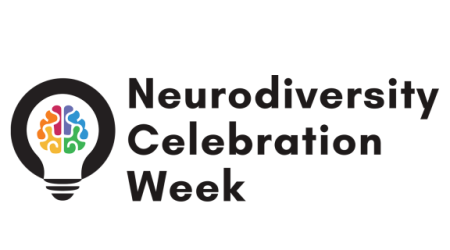Dyslexia – it gives me my strengths, and they have shaped my career

What is dyslexia? It’s a word that we all know, and it is highly likely that we all know someone who is dyslexic. It is a common neurodevelopmental disorder that affects the ability to read and write. It is thought to affect 10% of children and between 5 – 17.5% of the wider population, put into context up to 1 in 6 people are neurodiverse in this way.
Studies have shown that dyslexia is genetically inherited, meaning that it runs in families. Doust et al 2022, working with data from 23&me carried out a genome-wide association study (GWAS) of nearly 52 thousand adults who self-report as dyslexic. The study used over 1 million control genome sequences to identify 42 loci (regions of the genome) which were significantly correlated with dyslexia.
This analysis showed that dyslexia is strongly correlated with ADHD, ambidexterity and pain perception. Those with the condition had a propensity for vocational qualifications (over academic) and were more likely to have a physical occupation.
Whilst this data links dyslexia with non-academic qualifications, many academics are dyslexic, including our Director, Professor Graham Moore. We asked Graham to share his experience of dyslexia, what it means to him day-to-day and how it has shaped his academic career.
“I’d known since school that I had a problem with words and writing, but it wasn’t until later in life that I realised I had something that could be named, dyslexia. At school they thought I was just hopeless, or lazy and they treated me quite badly.
Teachers and adults assumed I was being difficult because I was bright, they thought that I just pretended I couldn’t read aloud. So, I came up with strategies to mask the differences that I experienced. It wasn’t until later in life when one of my children was formally diagnosed that I realised I was dyslexic. I’ve never formally been diagnosed.
Since then, it has become more acceptable to talk about it, and I often turn to colleagues and my family for support.
Having dyslexia has allowed me to think about my strengths and weaknesses objectively – and I believe this is a useful process for anyone to go through.
I visualise my dyslexia as a circle with four squares in – on one side there are two boxes which represent the positives, and for me those are pattern recognition and strategic thinking. On the other side of the circle are the two boxes with the negatives, these are that it takes me more time to process information and reading/writing.
Like many people with dyslexia, I see patterns that others don’t see. Early in my career I was sent a whole load of data, probably 200 pages of typed out genetic code to look at. Just by looking at the data I could see patterns or blocks in the data. I quickly sketched out what I could see, and from this I developed the concept of Synteny in cereals. I was awarded the Royal Society’s Darwin Medal for this work in 1998. Without dyslexia I wouldn’t have been able identify the patterns just by looking at the pages and that was a pivotal moment in my career.
My dyslexia is also what makes me more strategic: I can easily visualise things, such as processes and how they should work into the future. This has been an advantage in my career, and I think it is why I chose to work on wheat. This being able to think strategically is useful when working on wheat, as it takes time and you must think ahead, and this suited me well. I think that my ability to think long term and to see where the research needs to go has been really valuable when running the UK’s wheat research programme, and I hope that it continues to be as an advantage as Director of the John Innes Centre.
The other interesting thing that I find is that I have insights into people’s experiences and thinking. I can get a feeling for where a person is going, even before they know what they are thinking. I can sense their direction of travel and many people have said to me, ‘You should be in a different career with these skills’. I don’t understand this ability, but my family all agree that I have this skill.
The most common thing that is associated with dyslexia is the difficulty with reading and writing, and I certainly experience this side of it. I write something down, and I think I have it all there on the page but when I come to review it, I have written different words.
I think of a word, and then actually type something different. I have been known to accidentally write some hilarious e-mails. Because of this I spend time checking what I’ve typed in case I have written something unintentional. I still do this, and I find that by taking time and checking my words I can pick mistakes up. This is more difficult if I am tired and working late.
To help with this, I nearly always ask other people to check my emails and writing, in particular my Research Assistant for many year, Tracie Draeger (who recently retired), and my family.
I’ve always had trouble reading aloud from a sheet of text and after my experience at school I found it easier to learn things instead of reading them. When I was younger, I took up acting and went onto the stage to hone my skills learning passages of text, so I didn’t have to read them. This helps me with presentations, it is better for me to learn what I am going to say rather than reading.
I take time reading and digesting things thoroughly rather than turning things around quickly. It takes me time to digest new information, so if someone gives a talk, I don’t often ask questions there and then. I don’t think that quickly on my feet, I find that I need time to process the information presented, the questions come later.
I prefer to take time to come to a decision, rather than deciding things there and then on the spot. The need to take time to think and process information is all related to “working memory”, and I think it’s important to be aware of this, as it is a useful thing to learn about yourself.
However, because of my other characteristics, if I take time to process information, I often find myself in a better position with good strategic insights and long-term ideas, plus I can spot patterns in information and data.
Of course, not everyone with dyslexia has the same experience, particularly with pattern recognition but in general there are a few simple things that I do, and that others can do to help. One of the things is to limit my inbox to around 20 working emails, and I work hard to be very organised. I have lists, loads of lists, and even lists of lists.
I ask my colleagues to keep written things brief, and to use bullet points where possible. It is also really helpful to send information to me as early as possible.
Reading, like writing, gets worse as I get tired, so you shouldn’t expect a reply from me late at night, and I try to remind people that being able to ‘quickly’ send an email is not always that easy.
Overall, I think that dyslexia is a balance of pros and cons, it has helped me in some ways and hindered me in others. Neurodiversity is an important part of organisations, teams and society and without people that think differently we wouldn’t be as creative, efficient or strategic.”
We would like to thank Graham for sharing his experience with us in this blog.
Neurodiversity
The term ‘neurodiversity’ refers to neurological, rather than psychological differences. These differences are classed as the result of natural variation similar to biodiversity. It covers specific learning differences (spLD) such as dyslexia, dyspraxia and Attention Deficit Hyperactivity Disorder (ADHD) as well as Autism Spectrum Disorder (ASD).
Often, these differences occur together – 60 per cent of those with one condition will have another as well. It is likely that there is some genetic component to having an spLD or being autistic as it often runs in families, but importantly it is independent of intelligence. It is estimated that 15% of people are neurodiverse.


